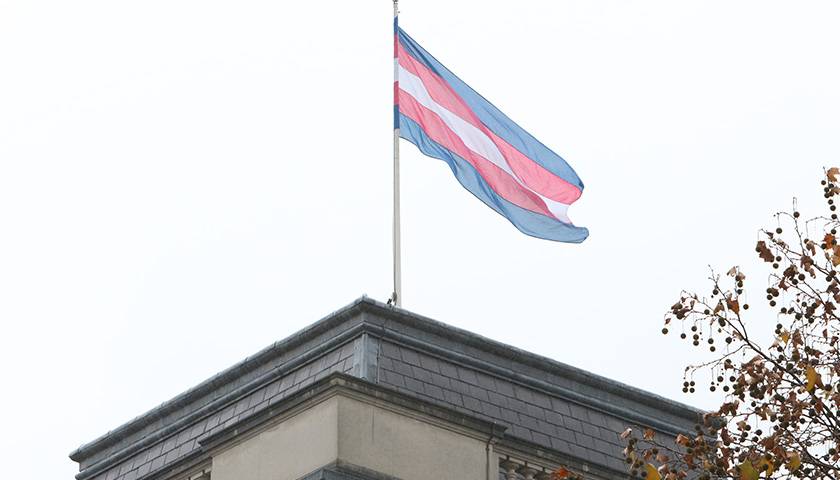by Mary Frances Myler
Spring is filled with myriad holy days for the Catholic Church. St. Patrick’s and St. Joseph’s feast days are widely celebrated, and the Solemnity of the Annunciation on March 25 gives another cause for celebration during the somber season of Lent. Soon after, Lent leads to Palm Sunday, which quickly gives way to the Paschal Triduum, the holiest days of the year. Then, at last, the joy of the Easter season begins.
But just before Holy Week began, a group of Catholic sisters found time to celebrate another holiday: Transgender Day of Visibility.
This celebration, which occurs annually on March 31, is foreign to the liturgical calendar but increasingly familiar to secular culture. Established in 2009 by transgender activist Rachel Crandall-Crocker, the day celebrating transgenderism has become a routine occasion for the mainstream media, major companies, and the U.S. government. Starting in March 2021, President Joe Biden has annually signed presidential proclamations for the Transgender Day of Visibility.
Representatives wrote the statement on behalf of 27 religious communities, which represent more than “6,000 vowed Catholic religious and partners in mission in over 18 states.”
The statement is a jumbled assortment of leftist verbiage that pays homage to the ever-shifting goalposts of gender ideology and critical race theory. According to the statement, the “Gospel call of unifying love compels us to actively … dismantle the systems that reinforce [harmful] rhetoric and violence in society, particularly for Black, Indigenous, and other folks of color.”
The Gospel undoubtedly calls man to construct a society that promotes human flourishing and the common good, but the Church draws her substantive understandings of those concepts from scripture and tradition — not from the most recent iteration of the Democratic Party platform.
The sisters’ statement follows closely on the heels of interventions by the pope and the American bishops on the topic of transgenderism.
Drawing on the Church’s theological tradition — and referencing Pope Francis’ papal writings — the United States Conference of Catholic Bishops Committee on Doctrine published the doctrinal note “The Moral Limits of Technological Manipulation of the Human Body” on March 20. The title is long, but the teaching is simple: so-called “gender-affirming care” is a transgression against human nature.
Reading the list of communities that signed the Transgender Day of Visibility statement doesn’t give an altogether clear picture of the parties involved. With names like Adorers of the Blood of Christ, Sisters of Providence, and Sisters of St. Joseph, it would seem that the vowed religious sisters would have some loyalty to orthodoxy.
But their true allegiances are thrown into sharp relief by their suggestion that people sign the “Beloved by God” declaration, which calls for the affirmation of people’s gender identities and the adoption of the standards of “gender-affirming care” promoted by the World Professional Association for Transgender Health at religiously affiliated healthcare centers.
No statement from the pope or the bishops will give these sisters pause; they have chosen the Pride flag over the cross. Pray for them, and pray for the people they will lead astray.
– – –
Mary Frances Myler is a postgraduate fellow with the University of Notre Dame’s Center for Citizenship and Constitutional Government. Her writing has been published in the American Conservative, the National Catholic Register, Law and Liberty, and the Federalist.
Photo “Transgender Pride Flag” by Foreign Commonwealth and Development Office. CC BY 2.0.




